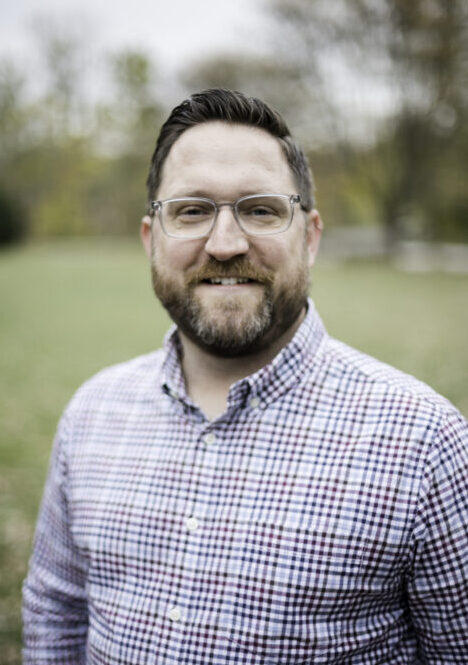Learning leadership: Purdue HHS alumnus finds family and consumer sciences education major opens diverse opportunities
Written By: Rebecca Hoffa, rhoffa@purdue.edu

Dennis SwenderPhoto Provided
It wasn’t a desire to teach that initially led Dennis Swender to the family and consumer sciences (FCS) education major in the Purdue University College of Health and Human Sciences. He just wanted to help people — the training in education was merely a bonus that might help him if he chose to pursue a master’s degree in social work or counseling.
However, since graduating from Purdue in 2001, he has stayed in the education industry. Now, he works as director of operations at the Oaks Academy in Indianapolis, and he has found that although he isn’t teaching anymore, his education from the Department of Human Development and Family Studies remains valuable.
“If you look at FCS foundations in what they called our ‘process areas,’ it was thinking, communication, leadership and management,” Swender said. “Those are the very things that I use to do my job now. Training in home economics essentially equipped people to run the business of the home. Operations has all the same principles, just applied to facility management — tons of multi-tasking, budgeting, costing, project management, design, interpersonal relationships and more.”
As a first-year student at Purdue, Swender declared a sociology major because of his interest in people and their behaviors, but he quickly realized it wasn’t the right fit for him. The more he utilized career counseling and exploratory courses at Purdue to find a major that would lead to a helping profession, he kept finding himself confronting the FCS education major.
While he’d initially dismissed the major, he decided to meet with an academic advisor who helped him see that the major was the right fit for him after all. Upon declaring the major, he found that the richness of the program put him ahead of his peers in other programs by giving him a deep understanding of family and consumer sciences content, leadership, and curriculum and program development.
“I found in my first year teaching that I was well equipped to be teaching,” Swender said.
While he enjoyed being in the classroom and interacting with students, that wasn’t what led him to stay in the field. After building the FCS program up from a bare existence to a flourishing program at the school where he first began teaching, he found that he wanted to do more. He earned a master’s degree — but not to become a counselor or social worker. Rather, he pursued curriculum and instruction.
“Education is kind of messy, and I think that some of the skills that we were taught in the FCS education bachelor’s program and the curriculum and instruction master’s program helped me to take that mess and bring order to it, and I enjoyed that,” Swender said. “I was good at it, and it was benefiting schools where I was, so I just kind of stuck with it.”
After five years in the classroom, he transitioned to Indianapolis Metropolitan High School as an advisor, where he advocated for students and worked with them to develop individualized learning plans. During his time at the charter school, he took on large projects, such as creating a digital self-paced curriculum for students and developing a program to allow students to earn additional certifications that would prepare them with career skills immediately out of high school.
“That was my first step in really taking on some administrative responsibilities,” Swender said. “I really loved it.”
Now, as director of operations at the Oaks Academy, Swender finds that he enjoys streamlining processes for the school to deploy his team of custodians, facilities staff and safety staff in a way that ensures everything runs as efficiently as possible in the school. His job allows him to constantly learn new skills while also supporting and advocating for his team and the school. Swender was influenced during his time in the FCS education program to become a life-long learner, so to continue his skill development, he earned an MBA.
“If there’s a safety problem, I’m going to fix it so teachers don’t have to worry,” Swender said. “If there’s a custodial problem, I’m going to do what I can to make sure that they don’t have to think about it. I manage that part to help the school, the teachers and the students advance.”
As his diverse career in education indicates, Swender noted that there are many opportunities a FCS education major affords undergraduate students, both in education and beyond.
“It’s a broad program that requires a lot of hard work, and some of that work they may not understand as an undergraduate, but it pays off in the long run,” Swender said. “While teaching is the ultimate goal for that program, they can be equipped to do anything. Sometimes that may mean an additional graduate degree, so they may need to pursue other training, but they’re well-equipped for that training.”